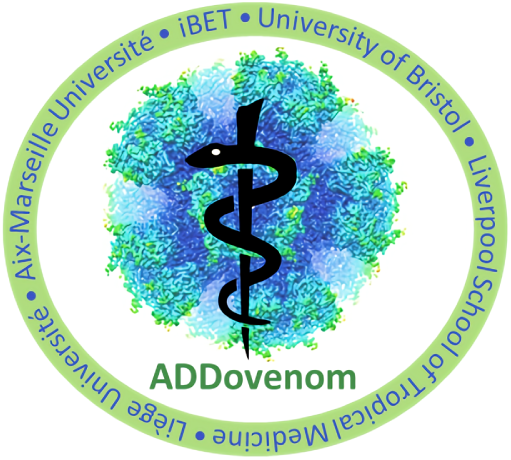For our Researcher Spotlight features, we interview members of the ADDovenom research team, to find out about their interests, their contributions to the project, and their hopes for the future of venom research.
Here, we speak with Huan Sun, a Research Associate in the School of Biochemistry at the University of Bristol.
Can you tell us briefly about your own research interests and background?
The main area of interest for my research is chemical biology but my research background is in molecular biology, with a focus on evolving protein binders or enzymes.
When did you first become interested in venom research?
When I finished my PhD study, I was looking for a post-doc position, and I was attracted by venom research, which seemed very intriguing and meaningful. ADDovenom is a brilliant project which combines lab research with societal and commercial impacts.
What are your key responsibilities in the ADDovenom project?
My key responsibility is evolving ADDobody binders by ribosome display to neutralize venom toxins. Then I will characterize those binders, including the binding affinity, neutralization, specificity, and structures. Afterwards, I will choose the best binders to assemble into the ADDovenom superbinder.
What do you hope will be the main outputs from your work on ADDovenom?
I hope I will get very useful ADDobody binders with a nice yield which will effectively neutralize toxins. Those binders can then be applied in clinical treatments.
Can you tell us of one recent development in the world of venom research that has interested you?
Proteomics of venoms and antivenoms.
Do you have a favourite snake – if so, which one, and why?
Naja (cobras) because they look different to other snakes.
Is there anything else you would like to tell us?
I hope my research will contribute to helping people who need to be treated for snakebites.


